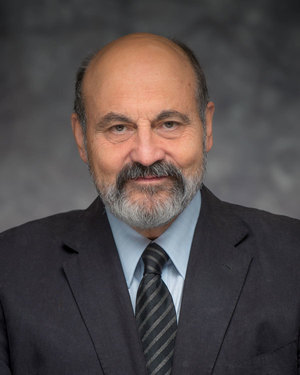
- Charles University
- Professor
- Templeton Fellow (2015-2016)
- "Afternoon of Christianity: How Can Christian Monotheism Keep Its Identity in Global Pluralistic ‘Post-Secular’ Civilization?"
- Director's Fellow (2017-2018)
- "The Theological Hermeneutics of Contemporary History, Society, and Culture"
Msgr. Professor Tomáš Halík is Professor of Philosophy at the Institute of Philosophy and Religious Studies at Charles University in Prague. He specializes in philosophy of religion and sociology of religion, interreligious dialogue and dialogue between believers and nonbelievers.
Professor Halík is the author of numerous works in which his focus is the spiritual diagnosis of our times and the dialogue between faith and atheism, including Patience with God (2010) and Night of the Confessor (2012). His book I Want You to Be (2016), which was published by the University of Notre Dame Press, received the Foreword Reviews’ INDIES Book of the Year Gold Award for Philosophy (2016) and the Catholic Press Association Book Award for Theology (2017). His books have been published in up to 18 languages and have received international recognition and awards. Patience with God (2010) received the prize for the best European Theological Book for 2009-2010 by the decision of European Society for Catholic Theology, and in the United States of America it was named book of the month in July 2010.
He has been a visiting professor at universities including Oxford and Cambridge, and he has lectured at a number of universities and international scholarly conferences in Europe, the United States of America, Asia, Australia, Canada, Latin America, and Southern Africa. He read annual lectures at Harvard University, at Cambridge University, at Calvin College, at Catholic University Leuven, etc. In 1998, Professor Halík was appointed a member of the European Academy of Sciences and Arts. He also currently serves as president of the Christian Academy (since 1990) and vice-president of Council for Research in Values and Philosophy in Washington (2015). In 1992, Pope John Paul II appointed him advisor to the Pontifical Council for Dialogue with Non-Believers and in 2009, Pope Benedict XVI granted him the title of Monsignor – Honorary Prelate of His Holiness.
Professor Halík has received several international prizes, including the Cardinal Koenig Prize (2003) and the Romano Guardini Prize (2010), the honorary title Man of Reconciliation 2010 for his contribution to dialogue between Christian and Jews, the Medal for intercultural and religious dialogue from the Islamic Fund, and the Knight’s Cross of the Order of Merit of the Republic of Poland (2012). In 2014 he was awarded the Templeton Prize. He received an honorary doctorate in Divinity from Erfurt University (2014) and from Oxford University (2016). In the fall of 2015, he served as a Templeton Fellow in residence at the NDIAS.
Publications
-
I Want You to Be: On the God of Love
Notre Dame Press, 2016

In his two previous books translated into English, Patience with God and Night of the Confessor, best-selling Czech author and theologian Tomáš Halík focused on the relationship between faith and hope. Now, in I Want You to Be, Halík examines the connection between faith and love, meditating on a statement attributed to St. Augustine—amo, volo ut sis, “I love you: I want you to be”—and its importance for contemporary Christian practice. Halík suggests that because God is not an object, love for him must be expressed through love of human beings. He calls for Christians to avoid isolating themselves from secular modernity and recommends instead that they embrace an active and loving engagement with nonbelievers through acts of servitude. At the same time, Halík critiques the drive for mere material success and suggests that love must become more than a private virtue in contemporary society. I Want You to Be considers the future of Western society, with its strong division between Christian and secular traditions, and recommends that Christians think of themselves as partners with nonbelievers. Halik’s distinctive style is to present profound insights on religious themes in an accessible way to a lay audience. As in previous books, this volume links spiritual and theological/philosophical topics with a tentative diagnosis of our times. This is theology written on one’s knees; Halik is as much a spiritual writer as a theologian. I Want You to Be will interest both general and scholarly readers interested in questions of secularism and Christianity in modern life.